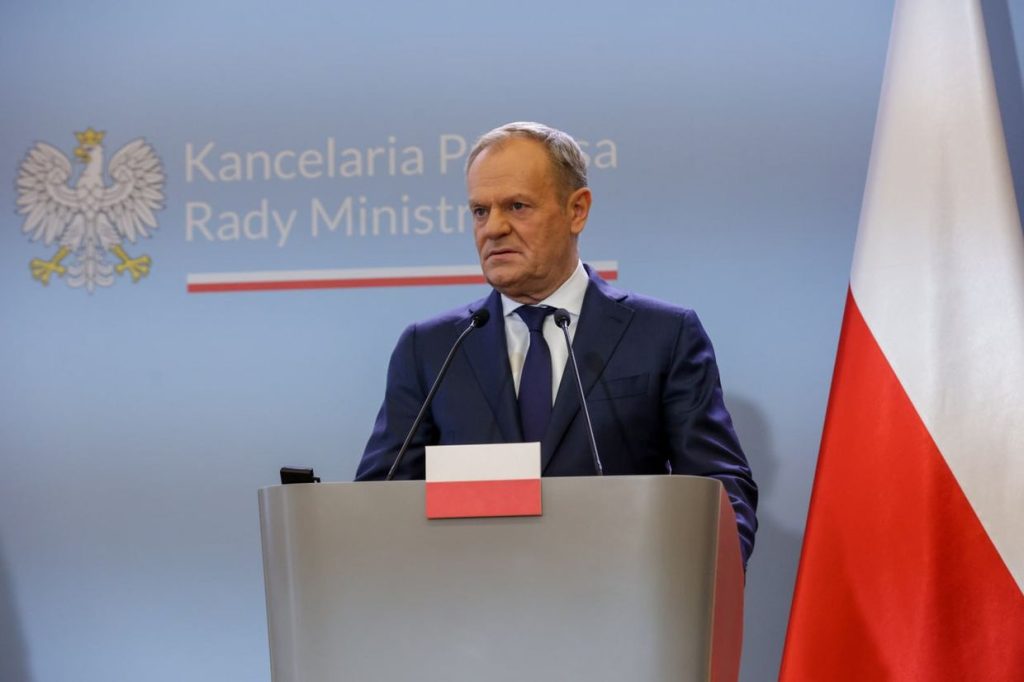Polish Prime Minister Donald Tusk has called on Polish farmers to stop blocking the border with Ukraine in protest of Ukrainian agricultural imports and the European Union’s Green Deal. The farmers began blocking trucks at border crossings in February, and despite ongoing negotiations, no resolution has been achieved. Tusk emphasized the importance of not harming Ukraine during this difficult time, especially after recent Russian attacks on the country’s energy infrastructure. The European Council has reached a provisional deal to extend the suspension of import duties and quotas on Ukrainian exports to the EU until June 2025, with new restrictions on agriculture products. The Polish government is prepared to provide assistance to farmers who have lost income due to the blockade.
The ongoing blockade has strained relations between Kyiv and Warsaw, with protestors spilling Ukrainian grain on several occasions. In an effort to address the issue and find mutually satisfactory solutions, Ukraine’s Prime Minister Denys Shmyhal visited Poland to meet with Prime Minister Tusk and discuss agricultural trade. The two officials agreed to explore options such as implementing a verification and control system for trade in agricultural goods. Additionally, a Council for Cooperation has been established between Poland and Ukraine to manage bilateral relations and support Ukraine’s reconstruction.
Despite efforts to find solutions, the blockade continues, with Polish farmers temporarily renewing the blockade of trucks at the Korczowa-Krakovets and Medyka-Shehyni crossings. Tusk stressed the importance of avoiding any harm to Ukraine during a critical period where the fate of the war is being decided. While Polish state services are working to clear the checkpoints, Tusk does not see the need for direct enforcement measures at this time. The European Council’s decision to extend the suspension of import duties on Ukrainian exports comes with new restrictions on agriculture products, highlighting the complexities of the situation.
The blockade by Polish farmers has raised concerns and sparked outrage in Ukraine, with the spillage of Ukrainian grain adding fuel to the fire. The protest, which began in February, has persisted despite efforts to find a resolution through discussions and negotiations. The impact of the blockade on trade and relations between Ukraine and Poland underscores the need for a peaceful and constructive resolution. Prime Minister Tusk’s call for reflection and rejection of the blockade as a form of protest emphasizes the importance of considering the broader implications and consequences of such actions during a challenging time.
As the situation continues to unfold, efforts are underway to address the blockade and find ways to support affected farmers while maintaining trade relations between Ukraine and Poland. The establishment of the Council for Cooperation and ongoing discussions between officials from both countries reflect a commitment to finding solutions and improving bilateral relations. In a complex geopolitical environment where external factors like the European Union’s policies and Russian aggression impact trade and agricultural imports, finding a balance between meeting domestic concerns and honoring international agreements is crucial. The blockade serves as a reminder of the interconnectedness of economies and the necessity of cooperation and dialogue to address disputes and challenges effectively.















